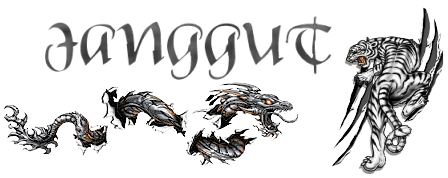|
|
Post by ss on Jan 25, 2006 12:02:02 GMT
bear arms (to protect yourself AGAINST the government-which is why it was put in),Please - explain that to me - why would a government (any government) pass a law that allows its citizens to arm themselves with the purpose (!) to enable them to armed resistance against government actions -  ?? The Bill of Rights, (1st ten amendments to the constitution) we enacted at the time of the "revolutionary" war... Amendment I Congress shall make no law respecting an establishment of religion, or prohibiting the free exercise thereof; or abridging the freedom of speech, or of the press; or the right of the people peaceably to assemble, and to petition the Government for a redress of grievances. Amendment II. A well regulated Militia, being necessary to the security of a free State, the right of the people to keep and bear Arms, shall not be infringed. Everything at that time was directed to The Right of the State to protect itself against the Federal government. All things not granted by the constitution to the Federal government (which are very few) remain the right of the individual state.....hence the civil war came later basically over state rights...not slavery, although it did become a issue Lincoln used to keep the northern coalition of states together and field an army... We had just fought a war with England over the perceived tyranny of King George, and it the context of the culture and times, NOBODY was giving up their arms.. Most americans now fear their own govt more than any other nation...due to the lack of freedom being pressed on them and have to fight to keep those 10 amendments from being annulled... Australia took the guns from private citizens, check out what happened to the crime rate...  We over here have a joke about the 2 biggest lies... !. The check is in the mail.... 2. I'm from the government and I'm here to help you out.. ;D |
|
brett
Apprentice
  "We'll get you some cool new clothes, Tom"
"We'll get you some cool new clothes, Tom"
Posts: 162
|
Post by brett on Jan 25, 2006 12:21:20 GMT
Australia took the guns from private citizens, check out what happened to the crime rate...  Nothing? People can still own guns, just the high-powered ones after the Port Arthur Massacre were 'bought' back by the government. I should know, because my old man still has his gun in the shed that he uses as a farmer to shoot birds, rabbits, et al from eating the produce. Did a quick google search and found this article. From my experience, it seems to sum it up well and reflect the actual situation, without the rhetoric/bias. www.snopes.com/crime/statistics/ausguns.asp |
|
|
|
Post by ss on Jan 26, 2006 0:05:40 GMT
@ Brett -- I read the article...interesting....so who is right..??..I don't know either author, but will accept the article at face value...  I did not know that Aussies do not have a constitutional right to own guns...who would have thunk it...  Still doesn't explain why they want everything gone apparently but shotguns and single shot pistols...if they are not worried about crime...what triggered (no pun intended) the buy back?  I still bet that nary a criminal sold back their guns.. ;D |
|
|
|
Post by janggut on Jan 26, 2006 2:40:53 GMT
good article, Brett. over herre in malaysia, private citizens are also not allowed to own guns but only those with legitimate reasons can but even then, those people are subjected to yearly tests which the tests are not only on the guns but also rudimentary psychological tests for owners.
|
|
|
|
Post by Glance A'Lot on Jan 26, 2006 9:57:05 GMT
@ ss: Thanks - and my best wishes!
So - has the question whether the USA is a Federal State (as the Federal Republic of Germany is) or a Federation of States (as the European Union tries to become^^) ever been clearly defined after the civil war?
|
|
|
|
Post by ss on Jan 26, 2006 20:05:07 GMT
@ ss: Thanks - and my best wishes! So - has the question whether the USA is a Federal State (as the Federal Republic of Germany is) or a Federation of States (as the European Union tries to become^^) ever been clearly defined after the civil war? @ Glance, I guess it would be a Federation of States, but not in the same...the EU is independent NATIONS banding together...I don't know if joining it would annul any of their independent sovereignty or not...when you do not have your own currency you are in for a rude awakening when you try to become and "independent" nation again... One of the ways that Germany rebuilt was making its own currency..even though it was not accepted outside the country, it made it work internally. (or so I've read). On the other hand - it could be similar to Germany as a Federal State, even though we probably would not use that term. Each State in the Union is completely autonomous and had to "join" the union and had to be ratified to be accepted...yet they still come under the Federal Govt overall....it's sort of an enigma of sorts...some folks say they really don't know just what it is.... ;D |
|
|
|
Post by Glance A'Lot on Jan 27, 2006 10:16:42 GMT
AH ss - you waken my provocative mind!^^
What's the difference between state and nation?
Federal State and Federation of States is a clear distinction in German, though I believe it to be similar, if not same in English.
In a Federal State (and other than the USA and Germany, there is quite a number of them around the globe) sovereign states unite - and give up certain of their sovereign rights!
Be that exterior politics (generally), defense (often), jurisdiction, education or else.
In a Federation of States, no sovereign rights are delegated - it's just an agreement of cooperation.
For example the 'Foreign Secretary' of the EU does not have 'ruling guideline jurisdiction' over the members - the members have to agree to a common policy for him to implement (you ask 25 people to agree on 'what shall be my opinion on the issue?' - obviously not the most efficient way to administer problems^^)
And - we have similar fights between the Federal Government and the states, as you in the USA.
But in the USA you have a wider area, and some of that historically simply made sense - and to some extent still does. But in historic Germany we had sovereign entities you could WALK across in an hour!
To give you a perspective - imagine a third of all Americans living in Montana, and then you split it up in 16 states, with own police authority, own law making (which may not conflict with the federal constitution, but certainly cannot be the same as in the other states, or else the 'identity' is at stage!), own education systems ('identity' again!!!)...
Every now and then one wonders, whether the abolishment of the 16 state parliaments would have any effect on the well-being of Germany as a whole - but with that I am about to commit a crime in not upholding the constitution, and questioning the 'liberal, democratic, basic order of the Federal Republic of Germany'.
|
|
|
|
Post by Dark Phoenix Rising on Jan 27, 2006 10:39:32 GMT
I suspect that the EU is currently a mixture of a Federation of States and a Federal state depending on which member country you are talking about. As things move on we will probably end up having an EU wide police force like the FBI that has jurisdiction over the whole of the EU but has more limited enforcement powers than the local police (but not less powerful or effective). A lot of the EU has already given up it's currency, and we already have laws that cross the national boundary, as well as courts that stand above the national courts.
|
|
|
|
Post by ss on Jan 27, 2006 20:31:50 GMT
@ glance - I copied this off a page when I googled "Nation State"... it is a supposed definition of same... interesting.. SS Country, State, and Nation From Matt Rosenberg, Your Guide to Geography. FREE Newsletter. Sign Up Now! Definining an Independent Country While the terms country, state, and nation are often used interchangeably, there is a difference. A State (note the capital "S") is a self-governing political entity. The term State can be used interchangeably with country. A nation, however, is a tightly-knit group of people which share a common culture. A nation-state is a nation which has the same borders as a State. States and Independent Countries Let's start with what defines a State or an independent country. An independent State: Has space or territory which has internationally recognized boundaries (boundary disputes are OK). Has people who live there on an ongoing basis. Has economic activity and an organized economy. A country regulates foreign and domestic trade and issues money. Has the power of social engineering, such as education. Has a transportation system for moving goods and people. Has a government which provides public services and police power. Has sovereignty. No other State should have power over the country's territory. Has external recognition. A country has been "voted into the club" by other countries. There are currently 192 independent countries or States around the world. Territories of countries or individual parts of a country are not countries in their own right. Examples of entities that are not countries include: Hong Kong, Bermuda, Greenland, Puerto Rico, and most notably the constituent parts of the United Kingdom. (Northern Ireland, Wales, Scotland, and England are not countries.) A "state" (with a lower-case "s") is usually a division of a federal State (such as the states of the United States of America). Nations and Nation-States Nations are culturally homogeneous groups of people, larger than a single tribe or community, which share a common language, institutions, religion, and historical experience. When a nation of people have a State or country of their own, it is called a nation-state. Places like France, Egypt, Germany, Japan, and New Zealand are excellent examples of nation-states. There are some States which have two nations, such as Canada and Belgium. Even with its multicultural society, the United States is also referred to as a nation-state because of the shared American "culture." There are nations without States. For example, the Kurds are stateless people.  |
|
|
|
Post by Glance A'Lot on Jan 27, 2006 21:45:27 GMT
Good one ss - I appreciate!
I hope you enjoyed the research and the answer found to my thrown-in question.
|
|
brett
Apprentice
  "We'll get you some cool new clothes, Tom"
"We'll get you some cool new clothes, Tom"
Posts: 162
|
Post by brett on Feb 2, 2006 12:17:38 GMT
@ Brett -- I read the article...interesting....so who is right..??..I don't know either author, but will accept the article at face value...  I did not know that Aussies do not have a constitutional right to own guns...who would have thunk it...  Still doesn't explain why they want everything gone apparently but shotguns and single shot pistols...if they are not worried about crime...what triggered (no pun intended) the buy back?  I still bet that nary a criminal sold back their guns.. ;D Well the reason for the buyback of automatic was pretty much solely due to the Port Arthur massacre 10 years ago (  ) where 35 people were killed. en.wikipedia.org/wiki/Port_Arthur_massacreI obviously don't think that restricting people's access to guns is a bad thing. My dad had to give back a shotgun he had for farming activities (shooting rabbits, birds from attacking the produce) and to tell you the truth, the air-rifle he has now does the same job, and is much less of a danger in the wrong hands, and for mind that's a better result. The criminals probably did not all give up their weapons, but if they were licensed for the particular guns being bought back, the government was enforcing the buy-back scheme pretty persistently, so the only 'banned' guns in circulation would presumably be the ones that were unlicensed and underground, so to speak. The guns for protection thing I don't much buy anyway. If someone's breaking into my house, give me an aluminum baseball bat over a gun anyday. Fists, forearms and elbows too.  |
|
 ??
??








 .com
.com

 ) where 35 people were killed.
) where 35 people were killed. 